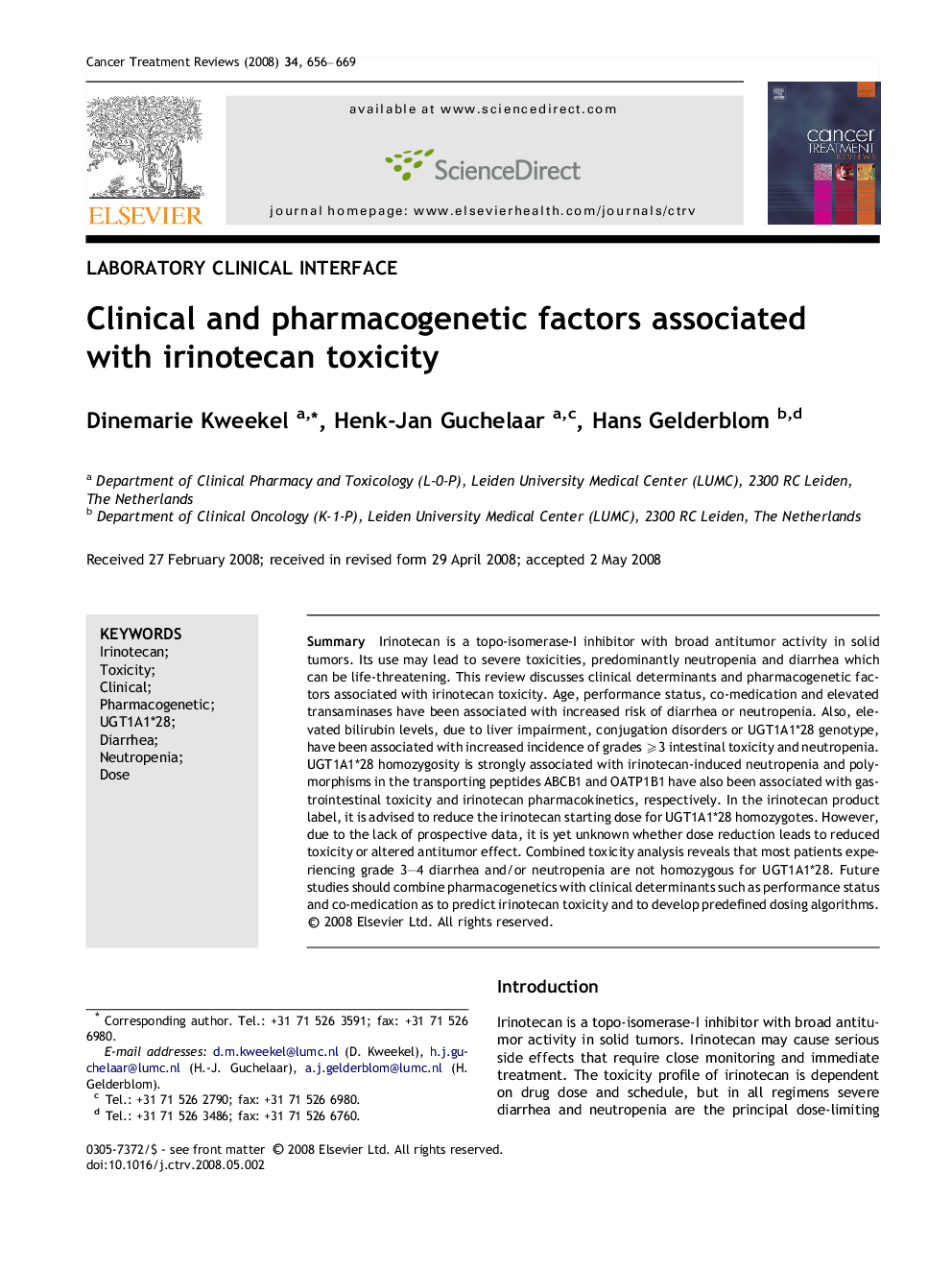| کد مقاله | کد نشریه | سال انتشار | مقاله انگلیسی | نسخه تمام متن |
|---|---|---|---|---|
| 3980584 | 1257440 | 2008 | 14 صفحه PDF | دانلود رایگان |

SummaryIrinotecan is a topo-isomerase-I inhibitor with broad antitumor activity in solid tumors. Its use may lead to severe toxicities, predominantly neutropenia and diarrhea which can be life-threatening. This review discusses clinical determinants and pharmacogenetic factors associated with irinotecan toxicity. Age, performance status, co-medication and elevated transaminases have been associated with increased risk of diarrhea or neutropenia. Also, elevated bilirubin levels, due to liver impairment, conjugation disorders or UGT1A1∗28 genotype, have been associated with increased incidence of grades ⩾3 intestinal toxicity and neutropenia. UGT1A1∗28 homozygosity is strongly associated with irinotecan-induced neutropenia and polymorphisms in the transporting peptides ABCB1 and OATP1B1 have also been associated with gastrointestinal toxicity and irinotecan pharmacokinetics, respectively. In the irinotecan product label, it is advised to reduce the irinotecan starting dose for UGT1A1∗28 homozygotes. However, due to the lack of prospective data, it is yet unknown whether dose reduction leads to reduced toxicity or altered antitumor effect. Combined toxicity analysis reveals that most patients experiencing grade 3–4 diarrhea and/or neutropenia are not homozygous for UGT1A1∗28. Future studies should combine pharmacogenetics with clinical determinants such as performance status and co-medication as to predict irinotecan toxicity and to develop predefined dosing algorithms.
Journal: Cancer Treatment Reviews - Volume 34, Issue 7, November 2008, Pages 656–669